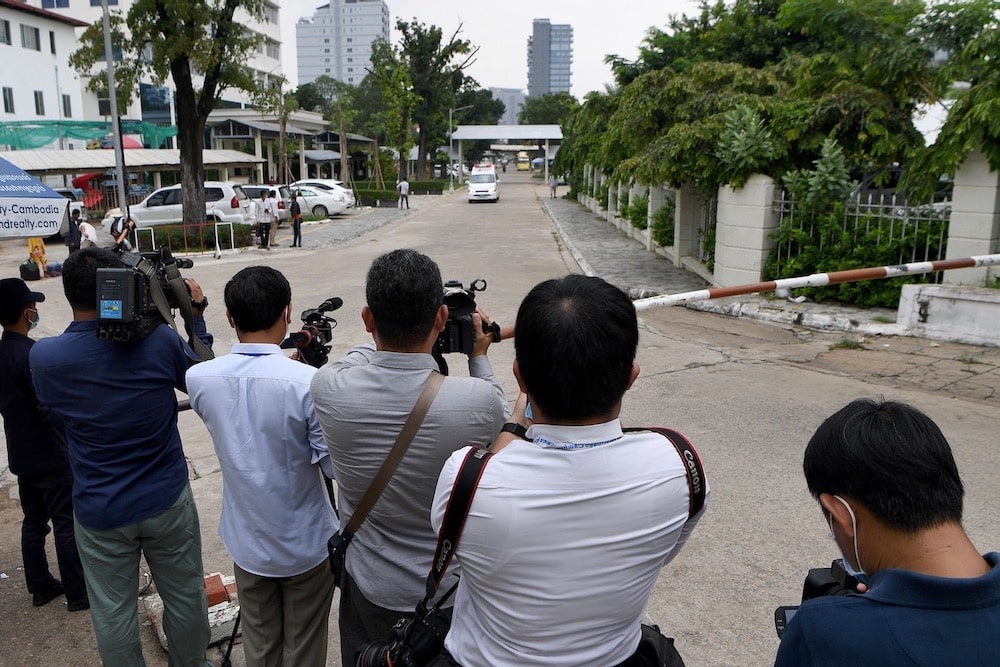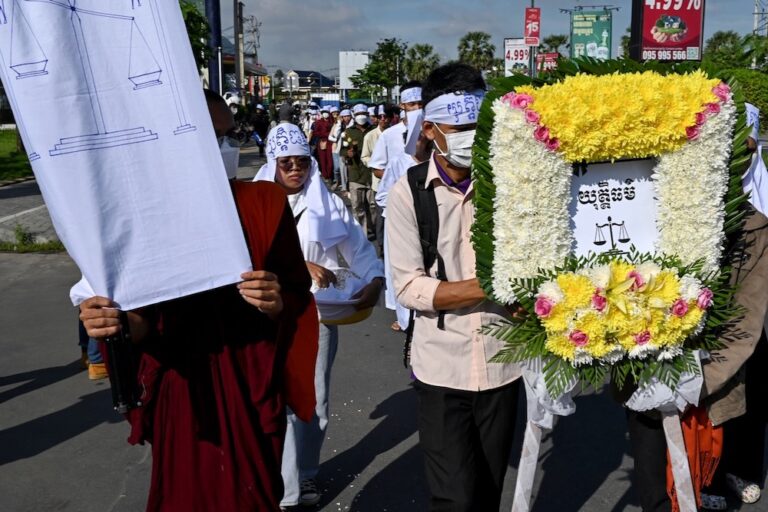The report noted that the government's crackdown on fundamental freedoms hindered public participation and undermined the advancement of democracy in Cambodia.
This statement was originally published on cchrcambodia.org on 11 October 2023.
The Cambodian Center for Human Rights (CCHR), the Cambodian Human Rights and Development Association (ADHOC), and the Solidarity Center announce the release of the 2022 Annual Report of the Cambodia Fundamental Freedoms Monitor produced by the Fundamental Freedoms Monitoring Project (FFMP). The report provides a comprehensive overview of the exercise of freedom of association, freedom of expression, and freedom of assembly (fundamental freedoms) in the Kingdom of Cambodia from 1 January to 31 December 2022.
The 2022 annual report is available for download in Khmer and English. The FFMP’s six previous reports are also available in Khmer and English.
Key trends documented in 2022 include:
-
- A Sub-Degree that will likely restrict the ability to exercise fundamental freedoms;
- Multiple attempts by the Royal Government of Cambodia (RGC) and third parties to hamper political opposition;
- Frequent arbitrary interference with public assemblies;
- An increase in self-censorship of Civil society organizations and trade union leaders;
- Continued arbitrary withdrawal licenses of media outlets; and
- Increasing belief by individuals that they do not feel free to exercise their right to freedom of expression in public.
Freedom of association, assembly, and expression are fundamental for exercising all human rights and paramount to a pluralistic democracy. They empower citizens to engage in activities and bring about positive societal change. The RGC’s crackdown on fundamental freedoms hinders public participation and is not conducive to the advancement of democracy in Cambodia. The trends noted in 2022 were especially concerning as the country Cambodia was advancing into the 2022 Commune Elections and 2023 National Elections, a critical time where the exercise of fundamental freedoms is essential for free and fair elections.
The FFMP’s latest report is based on 329 Media Monitoring incidents; 237 Incident Reports; a poll involving 1,424 members of the public across 25 provinces; and a survey of 150 civil society organizations and trade union leaders. Restrictions to fundamental freedoms were recorded in every province, with most of these occurring in Phnom Penh. The multitude of restrictions recorded by the FFMP illustrates the misapplication and arbitrary enforcement of Cambodia’s legal framework by the authorities. The RGC appears to use laws to curtail civic space and restrict the exercise of fundamental freedoms, rather than to protect these rights.
By offering a unique insight into the state of fundamental freedoms in Cambodia, the FFMP hopes to provide a foundation upon which informed, inclusive, and genuine discussions can take place to bring domestic law in line with international law. The FFMP encourages constructive steps toward the establishment of the necessary conditions for civil society to thrive and for democracy to flourish.



